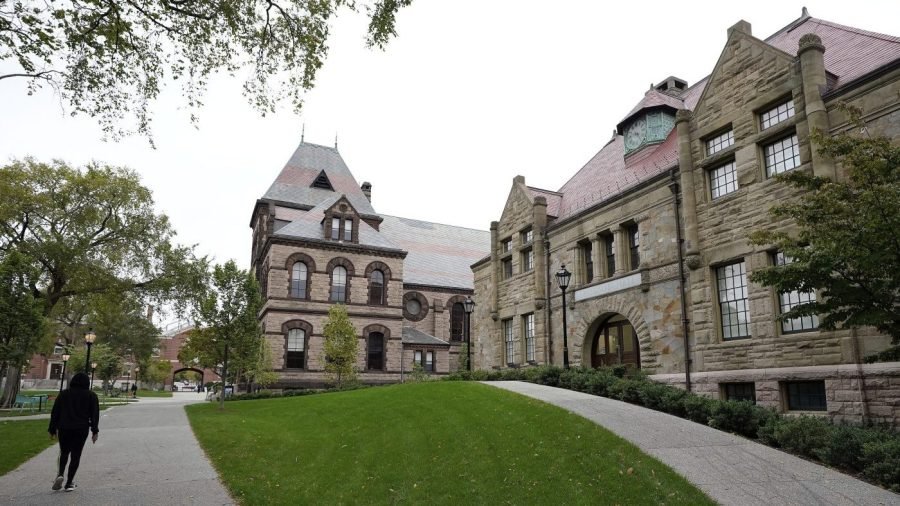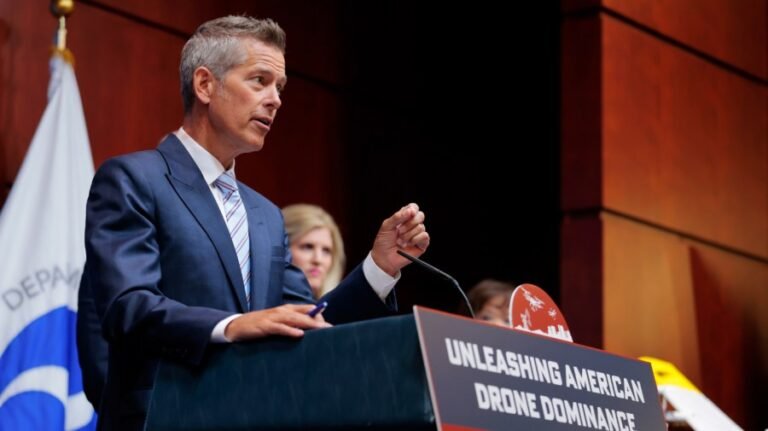
Last month, the University of Pennsylvania, Columbia University and Brown University cut deals with the Trump administration to resolve accusations related to antisemitism, diversity, equity and inclusion programs, and transgender rights.
The administration believes it now has a template for forcing universities to accede to its policy preferences: Make vague but sweeping allegations of discrimination; freeze hundreds of millions of dollars in research funding; overwhelm administrators with civil rights investigations and document requests; and threaten consequences ranging from stripping universities of their right to enroll international students to revoking their tax exemptions.
The means used to secure these deals amount to extortion. Over $400 million in research funding was frozen at Columbia with no due process and in violation of the procedural requirements of Title VI of the Civil Rights Act. Harvard University, which chose to litigate but is reported to be negotiating a deal, had over $2 billion in federal grants and contracts frozen and faces half a dozen civil rights investigations and threats to its international student population, tax exempt status and accreditation.
Trump’s tactics work because his targets cannot survive as modern research universities if they are at war with government agencies prepared to ignore legal constraints and social norms.
There are ample reasons to question the sincerity of the Trump administration’s commitment to combatting antisemitism, and throttling scientific research makes little sense as a response.
Many of the policies agreed to in the settlements reached by Columbia, Brown and Penn are damaging and dangerous. But some of the concerns on which they are based are legitimate. American institutions of higher education should act as well as react to this crisis.
The anti-Israel protests that engulfed some campuses last year brought with them a surge in antisemitism. Task force reports at Harvard, Columbia, Stanford, UCLA and other elite institutions acknowledge failures to do enough to address harassment of Jewish students, faculty and staff. At UCLA, for example, pro-Palestinian protesters barred Jewish students from crossing parts of campus, prompting a lawsuit UCLA recently settled for over $6 million and a Justice Department finding that UCLA violated civil rights laws and the 14th Amendment’s equal protection clause.
In its settlement agreement, Columbia pledged to review its Middle East programs to ensure their educational offerings are “comprehensive and balanced,” appoint new faculty members in related fields who “will contribute to a robust and intellectually diverse academic environment” and hire an administrator to serve as a liaison to students on antisemitism issues. We believe the imposition of these requirements poses a threat to academic freedom and university autonomy.
That said, the Trump administration’s draconian demands provided at least part of the impetus for institutions to revise their policies. Harvard, for example, announced a series of initiatives to encourage respectful discourse and support research on antisemitism. Other colleges and universities are also making efforts — generally commendable, sometimes problematic — to maintain their commitments to free speech while tightening time, place and manner restrictions on protests.
In an April 11 letter, the Trump administration also insisted that Harvard hire an “external party” to audit “the student body, faculty, staff and leadership for viewpoint diversity,” and then hire faculty and admit students to achieve balance in every department, faculty and teaching unit.
This demand is ill-defined, absurd and unconstitutional. But as Harvard’s president, Alan Garber, has acknowledged, the university needs to do more to ensure “a culture of free inquiry, viewpoint diversity and academic exploration.”
According to a 2023 survey, over 77 percent of Harvard’s faculty identify as “liberal” or “very liberal,” compared to 3 percent who identify as “conservative” or “very conservative.” Similar if less extreme disparities exist on most elite campuses, particularly in the humanities and social sciences. And as the Heterodox Academy has observed, a too-uniform political culture can give rise to “closed-minded orthodoxies within scholarly communities.”
The devil, of course, is in the details. Departments can easily rule out hiring a creationist to teach biology or a climate change denier to teach environmental studies. But what is the right mix of expertise in a history or chemistry department? And how should that be achieved without employing affirmative action, given the dearth of conservatives pursuing a Ph.D. in many fields? One thing, at least, should be clear: The answers to such questions should come from internal deliberations rather than external mandates.
The most controversial aspect of the Trump administration’s effort to remake higher education has been its attack on DEI programs.
The Columbia settlement insists not only that the university maintain “merit-based admission policies” and refrain from racial preferences, but also that it “may not use personal statements, diversity narratives, or any applicant reference to racial identity as a means to introduce or justify discrimination,” even though the Supreme Court’s decision on affirmative action permits universities to consider “an applicant’s discussion of how race affected his or her life, be it through discrimination, inspiration, or otherwise.” Universities must decide how to square this circle.
Similar language forbidding racial preferences appears in the Brown settlement. That agreement also requires Brown to “provide female student-athletes with intimate facilities such as locker rooms and bathrooms strictly separated on the basis of sex,” offer women the option of “female-only housing, restrooms, and showering facilities” and “ensure students have access to single-sex floors in on-campus housing,” with male and female defined in accordance with a Trump executive order insisting that sex is binary and immutable. These provisions go well beyond existing law and may make campuses less welcoming places for many students.
That said, some DEI policies should be reconsidered. Requiring job applicants to submit diversity statements, for example, risks the imposition of ideological filters. And although concerns about transgender athletes participating in college sports have been vastly overstated, there is room for fine-tuning participation policies.
Critics of the Trump administration rightly decry the bullying that is forcing universities to accept unprecedented government intrusion into university affairs.
Most of that intrusion will do far more harm than good. But colleges and universities should seize the moment to preserve and promote core values while implementing reforms that are reasonable, feasible and just. Doing so may not keep the wolf away, but it might help win over a skeptical public.
Glenn C. Altschuler is the Thomas and Dorothy Litwin Emeritus Professor of American Studies at Cornell University. David Wippman is emeritus president of Hamilton College.


